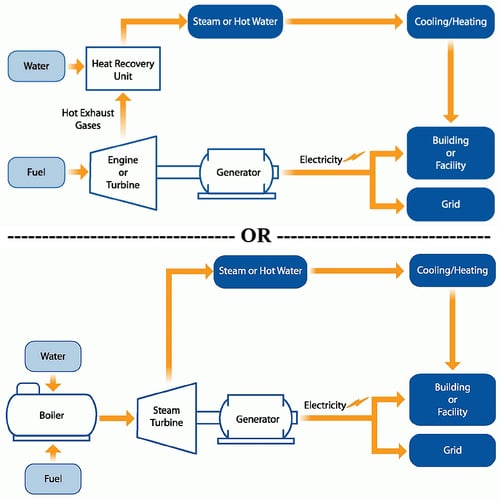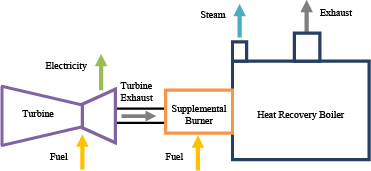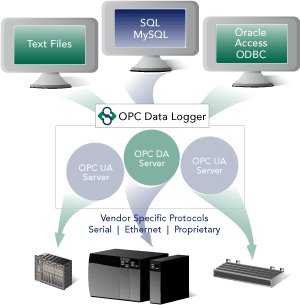At Software Toolbox, we commonly hear from users seeking a solution for connecting and gathering data from this or that type of hardware. Beyond that, though, is what users do with the data once they have it. A common need is reliably logging process to a database such as Microsoft SQL server.
In this blog post, we’ll discuss a specific use case of a German R&D firm needing to collect data from multiple OPC data sources and log that data to a SQL database for further analysis geared towards a pilot project developing a model for optimizing Combined Heat & Power Partnership (CHP) technology for transferability to many enterprises where heat and power generation are essential to the process.
In case you're not familiar with Combined Heat and Power Partnership (CHP), let me briefly break it down. CHP is a blanket term for technology systems that are designed to capture wasted heat produced during electricity generation. That reclaimed heat is then used to provide thermal energy (commonly in the form of steam and/or hot water) for use in other parts of the process or for facilities infrastructure such as space heating/cooling and consumable hot water. As such, CHP's applicability and usefulness is not limited to any one industry.

CHP can technically be applied on any project where there is significant waste heat being generated on a regular basis. It has been successfully applied across the gamut of commercial and residential buildings, at institutions such as universities and hospitals, for municipal facilities such as power generation and wastewater treatment and in manufacturing process such as chemicals, refining, pulp & paper, food & beverage and more.
The Use Case - Reliable Collection and Storage of Existing Process Data
So, for our use case, a research and development firm in Germany was tasked by the government to develop a model for economic and technological optimization of CHP heating in conjunction with large heat storage systems. At the pilot project site, a local heating network was equipped with a Flex-CHP plant, large heat storage systems and electric water heating (Power2Heat).

Dimensioning and operation of the CHP system will be optimized via modelling, which requires large amounts of historical data from the current process. One of the goals is developing an acceptable concept for heat storage that permits production of electricity independently from heating demand.
Important factors for such a heat storage system are type and size of the heat storage as well as hydraulic connections. The concept will be implemented at the pilot project site and relevant operating modes will be tested during trial operations.
Once complete, a comparative assessment including a transfer concept will be developed in order to achieve transferability to other enterprises and application.
The Data Collection Concept for CHP
The CHP-related systems referenced earlier at the pilot project site were equipped with Programmable Logic Controllers (PLCs) from Siemens, Hitachi and Honeywell for control of the system, each with their own existing OPC Server for data collection from the PLCs.

The R&D firm had already specified that the data would be pushed to a SQL database for storage until the end of the 6 month data collection period, after which, they would analyze the data for development of patterns that could used for the optimization model. Having previously used the OPC Data Logger successfully on an unrelated project for logging process data to SQL, the firm was confident in the reliability and performance of OPC Data Logger for this project as well.
OPC Data Logger Provided a Robust Data Logging Engine
The OPC Data Logger is typically chosen for effective event-driven logging, as it was in this use case. It's wizard-based user interface provides easy-to-use flexibility for users with any skill level. OPC Data Logger stores data to standard SQL/ODBC database, including Microsoft Azure SQL, or text/CSV files. Here are several of the key reasons OPC Data Logger is typically chosen for projects like this CHP pilot:
-
Data buffering and auto-reconnect ensure no data is lost
In the event that the OPC Data Logger loses its connection to the database during runtime, there is a fully configurable buffer that will safeguard all collected process data until the connection is re-established. This standard “store and forward” method is employed for directly in the application space of the OPC Data Logger.
Furthermore, in the event of a lost connection to the underlying OPC data source, the OPC Data Logger is designed to automatically reconnect to the OPC data source. This ensures that, as long as the underlying OPC source is available, the OPC Data Logger will be connected and collecting process data. -
Stored procedures support ensures the highest level of performance
The OPC Data Logger fully supports stored procedures as a means to log data to a database. In case you're not familiar with stored procedures, a stored procedure (SPROC) is a grouping of Transact-SQL statements compiled into a single execution plan in your database. Stored procedures provide the highest performance due to the nature of their being pre-compiled. -
Log only the data you need with event and exception based logging
Exception-based logging is the most reliable form of logging data when the project requires all new value changes. OPC Data Logger reads by using a subscription. Because the OPC Data Logger is receiving the value change event notifications only, resources and bandwidth are minimized.
The OPC Data Logger also supports event/trigger-based logging allowing you to specify an item from the OPC data source to be monitored and used for triggering any number of configurable events. Triggers can be used to begin logging, end logging, enable or disable groups of items, or even launch file spanning based on an item’s condition. (For more details on event-based logging, click here)
These two flexible methods ensure that OPC Data Logger logs only the data you need when you need it for the greatest efficiency.
Suitable for virtually any project where you simply need to log OPC process data to a text file or database, the OPC Data Logger is a reliable, cost-effective option. Interested in trying for yourself? Download the free OPC Data Logger trial to try conditional logging with your own OPC data sources. (For how-to video resources on using the OPC Data Logger, click here.)



